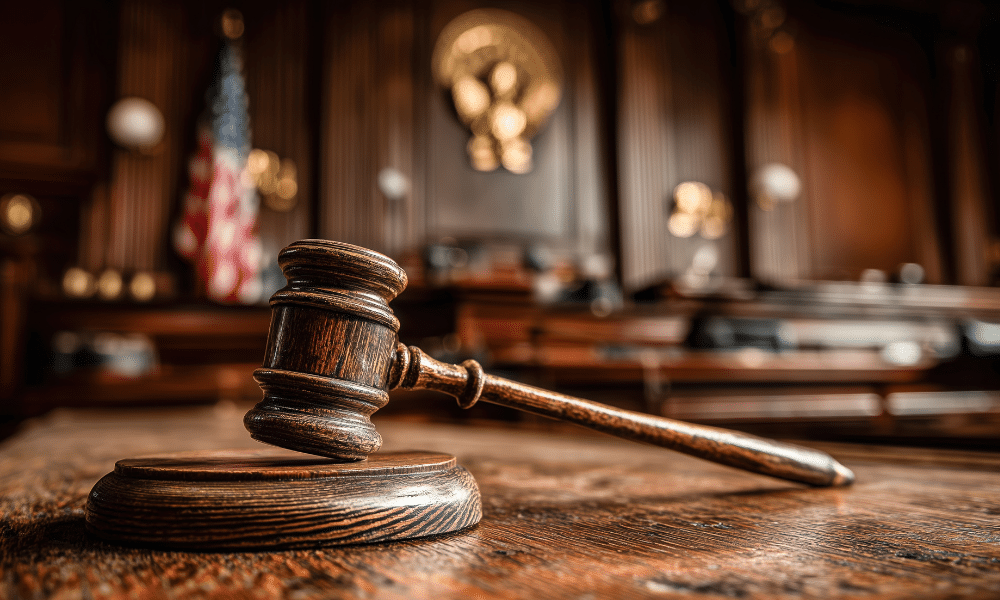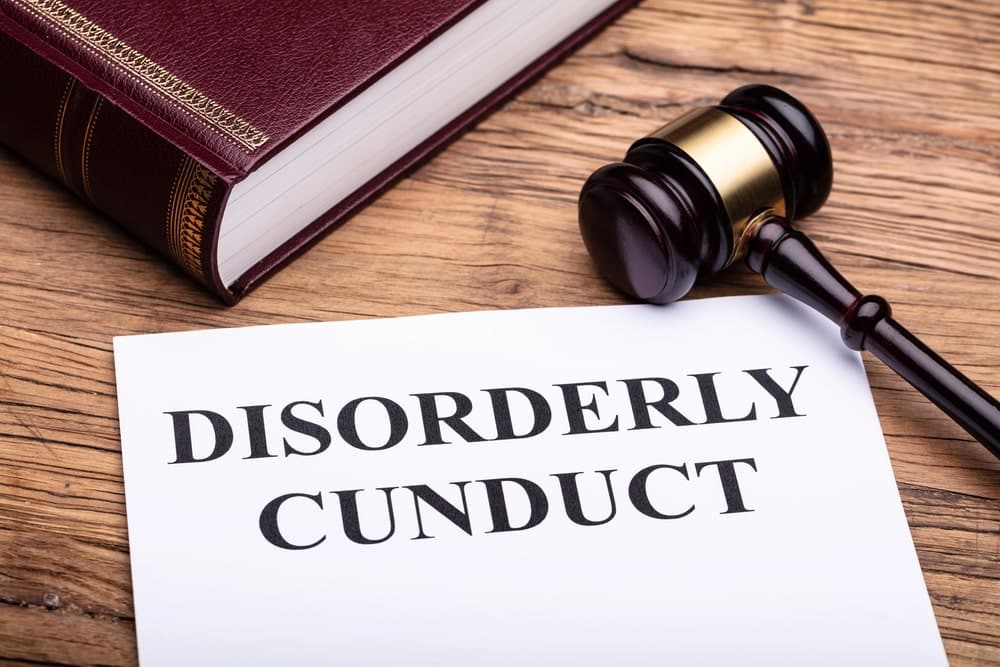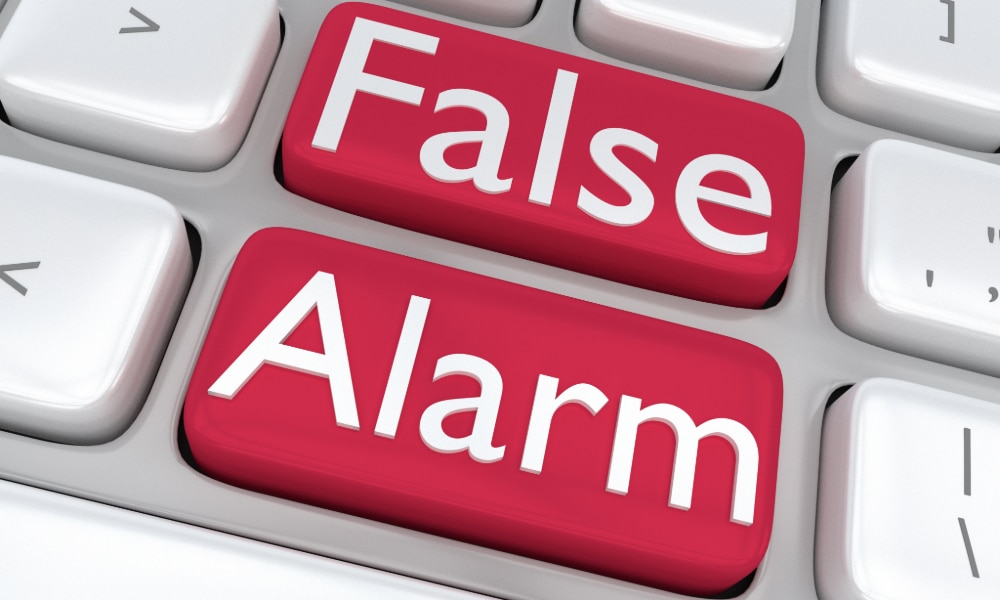Many people are unaware that it is a criminal offense in Maine to make a false report of an emergency that causes public alarm. Even those who are aware of the offense are sometimes surprised by the severity of the consequences of a conviction.
If found guilty of the offense of “false public alarm or report,” not only will you carry a criminal record for the rest of your life but you can also face lengthy jail terms and hefty fines.
Let’s take a closer look at what constitutes this offense, including some recent examples in Maine, along with an overview of the defenses that can be used to fight charges.
Call 207-571-8146 or contact us online to schedule a consult with one of our highly skilled criminal defense & OUI lawyers, serving Southern Maine, today.
Table of Contents
What is Considered a False Public Alarm or Report in Maine?
Knowingly providing false information to law enforcement or emergency services with the intent to induce them to believe a crime has been committed is a criminal offense in Maine.
The Maine Criminal Code says that a person is guilty of the offense of false public alarm or report if the person knowingly gives or causes to be given false information:
- To a law enforcement officer or an emergency communications center with the intent of inducing the officer or the emergency communications center, or any other emergency services personnel, to believe that a crime has been committed, knowing the information to be false.
- To a law enforcement officer, a member of a firefighting agency, including a volunteer fire department, an emergency communications center, or any other person knowing that the other person is likely to communicate the information to any of the above l concerning a fire, explosive, or other similar substance that is capable of endangering the safety of persons, knowing that the information is false, or knowing that the person has no information relating to the fire, explosive, or other similar substance.
- Concerning an emergency to an ambulance service, or any other emergency services personnel or a government agency or public utility that deals with emergencies involving danger to life or property, with the intent of inducing the service, personnel, agency, or utility to respond to the reported emergency, knowing the information to be false.
Note that an “emergency communications center” means a state, county, or municipal government entity that receives calls by 9-1-1, business lines, radio, or other methods.
What is an aggravated false public alarm or report?
An aggravated false public alarm or report offense occurs when the person commits the above-described offenses while causing the evacuation, shutdown, or lockdown of a building, school, public square, park, place of assembly, or public transportation facility.
Penalties for Making a False Public Alarm or Report in Maine
The offense of making a false public alarm or report is currently a Class D (misdemeanor-level) crime in Maine, resulting in maximum penalties of:
- Up to 364 days of jail, and
- A fine of up to $2,000.
In aggravated cases, the offense is elevated to a Class C (felony-level) crime, which results in:
- Up to five years in prison, and
- A fine of up to $5,000.
With such life-changing penalties possible, it is essential to seek experienced criminal defense representation if you are charged with these offenses.
Call 207-571-8146 or contact us online to schedule a consult with one of our highly skilled criminal defense & OUI lawyers, serving Southern Maine, today.
Examples of False Alarm Offenses: Swatting and School Threats
One of the most prominent examples of false alarm offenses in recent years in Maine has been false active shooter threats at schools.
On these occasions, false reports have triggered a lockdown, evacuation, or shutdown at a school or public place, with emergency personnel called to the scene and widespread panic created in the local community.
Ten schools received a fake active shooter report on one day alone in November 2022, triggering a massive police and emergency services response in several towns, from Sanford and Portland to Gardiner.
“Swatting” offenses, as they are known, may also involve a prank call about a hostage situation, with the intention of law enforcement sending a SWAT team or other officers to a targeted location.
Because of a spate of such “hoax” incidents, there were many calls for state lawmakers to increase the penalties for offenders, notably to raise Class D offenses to Class C. This prompted law changes in 2023 that introduced the aggravated version of the crime described above, which is a felony offense.
Legal Defenses Against False Public Alarm Charges in Maine
Public reaction against swatting offenses in Maine has helped to shape law enforcement responses to false public alarm charges. However, sometimes people are wrongly accused of the offense and make calls to emergency services in good faith, believing they are doing the right thing.
Criminal defense lawyers employ several legal strategies to contest such charges, including:
A mistake of fact
Intent must be proven by the prosecution for a conviction for a false public alarm or report offense. If the defendant did not have the intent to commit a crime because he/she misunderstood a particular fact—for instance, the defendant held a reasonable, good faith belief that an emergency was occurring—this defense can work.
There was a real emergency
If the prosecution asserts that the report of a false or fake emergency was made but the defense can show that there was a real emergency in progress when the call was made, this may be an effective defense.
The report did not claim an “emergency”
The understanding of an “emergency” can change from one individual or department to the next. If the defendant made a report but did not class the situation as an emergency, but it was interpreted as such by law enforcement, this may be a valid defense.
For experienced legal help and support with a charge of false public alarm or report, call the Maine Criminal Defense Group or contact us directly online for an initial case evaluation.
Call 207-571-8146 or contact us online to schedule a consult with one of our highly skilled criminal defense & OUI lawyers, serving Southern Maine, today.
Blog Article

If you are charged with a crime in Maine, going to trial is just one of the possible outcomes. In fact, around 90 percent of criminal cases in Maine are[...]

Defendants in criminal cases typically have four options for resolving their case if the charges are not dismissed: Plea negotiation, where the defendant agrees to plead guilty (or no contest)[...]

A criminal conviction usually appears on criminal records for life in Maine, potentially impacting the individual’s employment, education, travel, housing, immigration status, and more. However, certain low-level misdemeanor convictions can[...]

The legal term for sentencing a convicted criminal is not required to serve is called a suspended sentence. A suspended sentence is handed down during the sentencing portion following a[...]

If you receive a traffic ticket in Maine, you may be facing far more than demerit points or an administrative penalty. You could be facing criminal sanctions and a permanent[...]

In Maine, disorderly conduct laws effectively make disturbing the peace a criminal offense. While disorderly conduct is considered one of the least serious offenses under Maine’s Criminal Statutes, it can[...]

Any criminal charge for a drug-related offense is a serious matter in Maine,but how consequential the outcomes can get may depend on whether the charge is filed at the state[...]


Self-defense laws in the U.S. are complex, vary from state to state, and are often misunderstood. “Stand your ground” laws allow an individual to use deadly force in self-defense in[...]

Every day in Maine, people are charged with crimes that they did and did not do. Fortunately, in the U.S., we have a justice system that says you’re innocent until[...]
